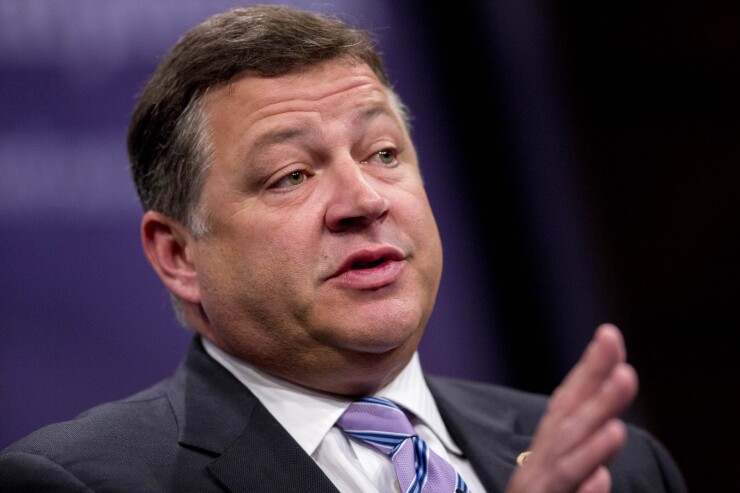
DALLAS – A $325 billion, six-year transportation bill proposed Friday by the House Transportation & Infrastructure Committee leaders includes a smaller increase in federal funding of highway and transit project than a bill adopted by the Senate in July.
The Surface Transportation Reauthorization and Reform Act of 2015 introduced by committee chairman Rep. Bill Shuster, R-Pa., would provide $242.3 billion from the Highway Trust Fund to highway projects through fiscal 2021 -- $14 billion less than the $256.3 billion in the Senate’s DRIVE Act (H.R. 22).
The Transportation and Infrastructure Committee’s proposal would allocate $54.9 billion to public transit projects over six years rather than the Senate bill’s $59.3 billion.
The House committee will meet Oct. 22 to vote on Shuster’s proposal, which is co-sponsored by Rep. Sam Graves, R-Mo., chairman of the panel’s highway subcommittee, Rep. Peter DeFazio, D-Ore., the committee’s ranking Democrat, and Rep. Eleanor Holmes Norton, D-D.C.
The current 90-day reauthorization of federal transportation funding will expire Oct. 29. Another short-term extension is expected so that the final House version can be reconciled with the DRIVE Act that the Senate passed in late July.
Congress has not passed a six-year highway bill since 2005. The 27-month Moving Ahead for Progress in the 21st Century transportation measure, adopted in 2012, has been extended twice since its scheduled demise last year.
A committee aide said the bill’s authorization of $325 billion of federal transportation funding from fiscal 2016 through 2021 is consistent with Congressional Budget Office’s baseline projection of $328 billion for current funding plus inflation.
Shuster’s proposal does not include additional revenues to support the $40 billion per year of HTF-dedicated collections, which currently fall $15 billion short of annual expenditures.
Rep. Paul Ryan, R-Wis., chairman of the tax-writing House Ways and Means Committee, advised Shuster last month to proceed with the allocation and policy portions of the highway bill due to an impasse with Senate Democrats on how much additional revenue would be needed for an increase in transportation funding.
The DRIVE Act is fully funded for only the first three years with the help of $46 billion from the general fund that would be made available through revenue offsets. The bill contains a provision that would void the final three years of funding if Congress has not agreed on additional revenues by then.
Shuster’s proposal would provide $200 million per year for the competitive grants authorized by the Transportation Infrastructure Finance and Innovation Act, which totaled $1 billion in 2015. The Senate bill would fund the TIFIA program at $300 million per year.
The House bill would also provide $4.4 billion for a new program to fund freight and highway projects of national significance, $2.9 billion for transportation projects on federal land, and $1.2 billion for projects in Puerto Rico and other U.S. territories.
The funding levels are not as high as Democrats wanted. A significant increase in federal transportation spending is needed to make up for years of under-funding, said Rep. John Delaney, D-Md., in an Oct. 15 letter to Shuster.
“To start making a dent in our infrastructure deficit, we should be investing 10% to 20% more, meaning a six-year bill would cost between $360 billion and $400 billion,” he said.
The Infrastructure 2.0 Act (H.R. 625), which Delaney introduced in January, would provide $120 billion for the HTF over six years by lowering the tax rate on repatriated overseas corporate earnings to 8.75% from the current 35%. A revolving loan fund would be established with $50 billion of the repatriated tax revenue, which Delaney said could be leveraged to provide up to $750 billion for local and state infrastructure projects.





